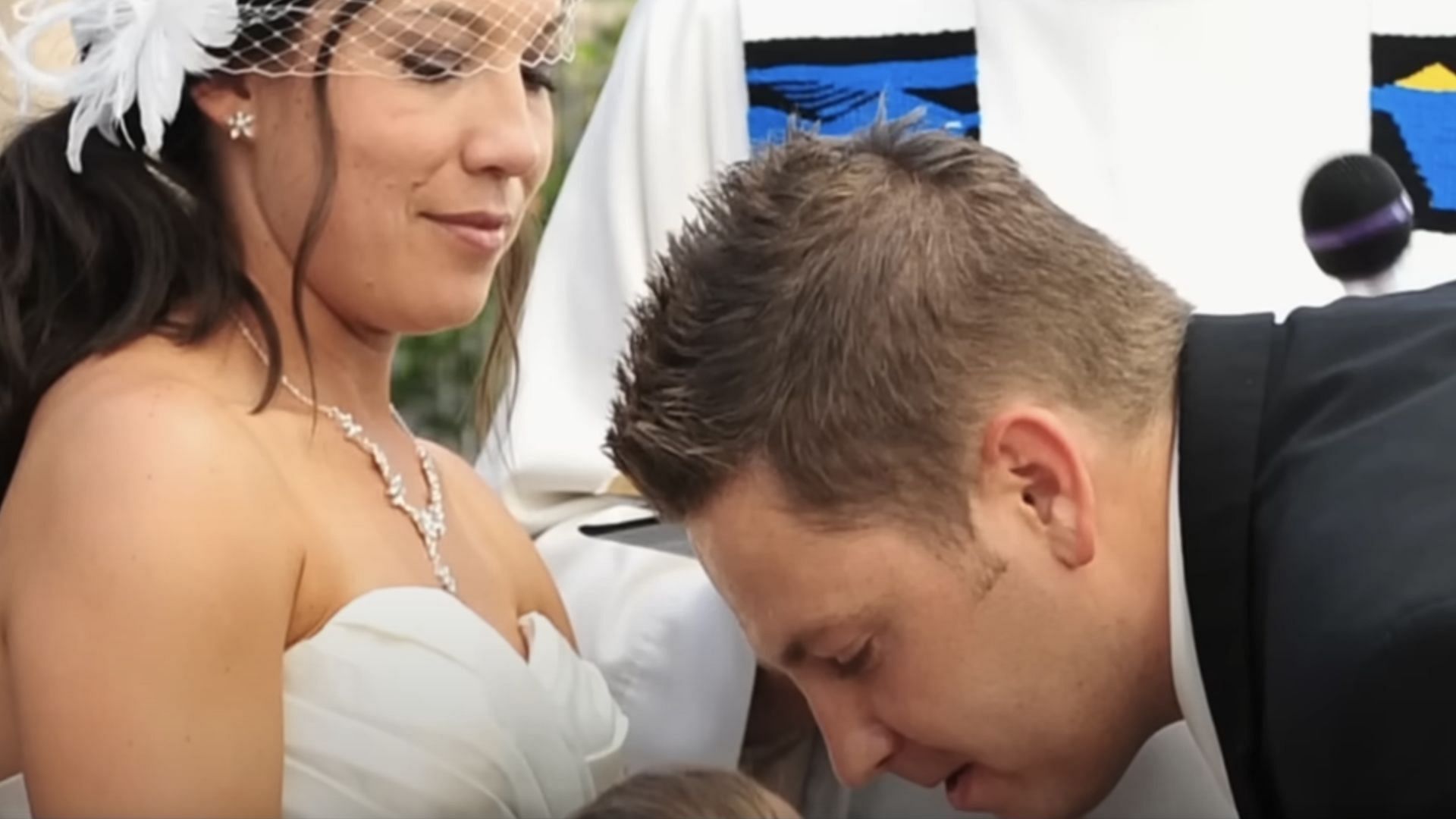Jason Lytle: The Indie Maestro Who Redefined Modern Soundscapes
In the vast, ever-evolving landscape of contemporary music, few artists have carved out a niche as distinct and emotionally resonant as Jason Lytle. His name, often synonymous with the critically acclaimed band Grandaddy, evokes a unique blend of melancholic beauty, technological nostalgia, and profound lyrical depth. This article delves into the multifaceted career and enduring impact of Jason Lytle, exploring the quiet genius who has consistently pushed the boundaries of indie rock.
While the initial query may have referred to "Jason Lytton," it is Jason Lytle, the visionary frontman, songwriter, and multi-instrumentalist, whose contributions have left an indelible mark on the indie music scene. From his early days crafting lo-fi masterpieces in Modesto, California, to his continued influence on a new generation of musicians, Lytle's artistry offers a compelling study in creativity, perseverance, and the pursuit of genuine expression. His work stands as a testament to the power of authentic voice in an often-homogenized industry.
Table of Contents
- The Name Jason: A Legacy of Healing and Leadership
- Who is Jason Lytle? A Brief Biography
- Jason Lytle's Distinctive Sound: Melancholy, Machines, and Melodies
- Beyond Grandaddy: Solo Ventures and Collaborations
- The Enduring Influence of Jason Lytle on Music
- Navigating the Digital Age: Jason Lytle and Music Accessibility
- The Future of Jason Lytle's Artistry
- Conclusion
The Name Jason: A Legacy of Healing and Leadership
The name "Jason" carries a rich tapestry of historical and mythological significance, roots that subtly resonate with the artistic journey of Jason Lytle. Derived from the Greek name Iason (Ιασων), it traces back to the Greek word iasthai (ιασθαι), meaning "to heal" or "to cure." This etymological depth imbues the name with a sense of restorative power, a quality that, perhaps coincidentally, mirrors the often cathartic and emotionally resonant nature of Lytle's music. His songs, frequently steeped in themes of longing, regret, and the quiet beauty of decay, possess a unique ability to connect with listeners on a profound level, offering a form of solace or understanding that can indeed feel "healing."
Beyond its linguistic origins, "Jason" is famously associated with the mythical Greek hero Jason, the intrepid leader of the Argonauts. In Greek mythology, Jason embarked on the perilous quest for the Golden Fleece, a journey fraught with challenges, betrayal, and incredible feats of courage. He was a figure of perseverance, resourcefulness, and leadership, qualities that, while perhaps not overtly heroic in the traditional sense, are certainly evident in Jason Lytle's artistic path. Leading Grandaddy through decades of independent music, navigating industry shifts, and maintaining a singular artistic vision requires a unique kind of leadership and resilience. Just as the mythical Jason led his crew through uncharted waters, Jason Lytle has steered his musical endeavors through the ever-changing tides of the music industry, consistently delivering authentic and groundbreaking work. This deep historical and linguistic background of his first name adds an interesting layer to understanding the persona and enduring legacy of Jason Lytle.
Who is Jason Lytle? A Brief Biography
Jason Lytle is an American musician, singer, songwriter, and record producer, best known as the frontman of the indie rock band Grandaddy. Born and raised in Modesto, California, Lytle's unique perspective and experiences in this seemingly ordinary Central Valley city profoundly shaped his artistic output. His music often reflects themes of nature, technology, and the quiet melancholy of suburban life, all filtered through a distinctively lo-fi, electronic-tinged lens. Unlike many artists who chase trends, Jason Lytle has consistently forged his own path, creating a body of work that is both deeply personal and universally resonant.
Personal Data & Biodata: Jason Lytle
| Full Name | Jason Lytle |
| Date of Birth | March 26, 1969 |
| Place of Birth | Modesto, California, USA |
| Nationality | American |
| Occupation | Musician, Singer, Songwriter, Record Producer |
| Genres | Indie Rock, Lo-Fi, Alternative Rock, Neo-Psychedelia |
| Instruments | Vocals, Guitar, Keyboards, Synthesizers, Drums |
| Associated Acts | Grandaddy, Admiral Radley, The Rentals |
| Notable Albums (Grandaddy) | The Sophtware Slump, Under the Western Freeway |
| Notable Solo Albums | Yours Truly, the Commuter, Dept. of Disappearance |
Early Life and Influences
Growing up in Modesto, a city often overshadowed by its more glamorous Californian counterparts, Jason Lytle found inspiration in the mundane and the overlooked. His early life was marked by a fascination with skateboarding and a burgeoning interest in music, particularly the burgeoning indie and alternative scenes of the late 1980s and early 1990s. Unlike many musicians who might have sought out bustling metropolitan centers, Lytle's decision to remain in Modesto allowed him to cultivate a unique sound untainted by external pressures or prevailing trends. This geographical isolation, coupled with his innate curiosity for technology and sound, laid the groundwork for the distinctive Grandaddy aesthetic.
His influences were diverse, ranging from classic rock to electronic music, but it was the independent spirit of bands like Pavement and Built to Spill that truly resonated. Lytle's approach to songwriting was often experimental, blending traditional song structures with unconventional instrumentation and recording techniques. He embraced the limitations of his home studio, transforming them into creative opportunities, a hallmark of the lo-fi movement. This early period was crucial in shaping the artistic sensibilities of Jason Lytle, fostering an environment where imagination could thrive without the constraints of commercial expectations.
The Grandaddy Era: Crafting Sonic Worlds
Grandaddy, formed in 1992, quickly became the primary vehicle for Jason Lytle's creative vision. The band, initially a trio, expanded to include a full lineup, but Lytle remained the undisputed creative force, responsible for the vast majority of the songwriting, vocals, and production. Their early releases, such as 1997's Under the Western Freeway, garnered critical acclaim for their unique blend of melancholic pop melodies, analog synthesizers, and Lytle's distinctive, often wistful vocals. This album introduced the world to Grandaddy's signature sound, characterized by its introspective lyrics and sonic textures that evoked vast, empty landscapes and forgotten technologies.
It was with 2000's The Sophtware Slump, however, that Grandaddy truly solidified their place in the indie rock pantheon. This concept album, exploring themes of technology's impact on humanity, environmental decay, and existential loneliness, was a masterpiece of intricate songwriting and innovative production. Songs like "The Crystal Lake" and "AM 180" became indie anthems, showcasing Lytle's unparalleled ability to craft narratives that were both deeply personal and broadly philosophical. The album's critical success cemented Jason Lytle's reputation as a visionary artist, capable of creating entire sonic worlds that were both beautiful and profoundly unsettling. Despite disbanding in 2006 and later reforming, Grandaddy's legacy, largely shaped by Jason Lytle, continues to influence countless musicians.
Jason Lytle's Distinctive Sound: Melancholy, Machines, and Melodies
The music of Jason Lytle, whether with Grandaddy or in his solo work, is instantly recognizable. It's a sound that defies easy categorization, weaving together elements of indie rock, electronic music, and folk with an unmistakable thread of bittersweet melancholy. This unique sonic signature is a direct reflection of Lytle's artistic temperament and his fascination with the interplay between the natural world and technological advancement. His compositions often feel like a soundtrack to quiet contemplation, evoking images of forgotten robots, sprawling landscapes, and the subtle hum of distant machinery. It's this fusion of organic and synthetic, of the human and the artificial, that gives Jason Lytle's work its enduring appeal and profound emotional depth.
Lyrical Themes and Storytelling
At the heart of Jason Lytle's artistry lies his exceptional lyrical prowess. His songs are often miniature narratives, populated by quirky characters (like the "fading robots" of The Sophtware Slump) and imbued with a sense of gentle pathos. Themes frequently explored include:
- Technological Nostalgia: A longing for simpler, less invasive forms of technology, or a commentary on the isolating effects of modern advancements.
- Environmentalism: A deep concern for the natural world and the impact of human activity on it, often expressed through poignant imagery of decaying landscapes.
- Existential Loneliness: A quiet exploration of solitude, alienation, and the search for meaning in a vast, indifferent universe.
- Suburban Life: Observations on the mundane yet profound aspects of everyday existence in quiet, unassuming towns.
- Personal Reflection: Introspective musings on relationships, past experiences, and the passage of time.
Lytle's storytelling is characterized by its subtlety and poetic imagery, allowing listeners to project their own experiences onto his narratives. He avoids overt declarations, preferring to paint vivid pictures with carefully chosen words, inviting the audience into his unique, often melancholic, world. This lyrical depth is a key reason why Jason Lytle's music resonates so deeply with fans, offering not just catchy tunes but also food for thought and emotional connection.
Production Wizardry and Lo-Fi Aesthetics
Beyond his songwriting, Jason Lytle is a master of production, often crafting his albums in his home studio with a hands-on approach. His sound is characterized by a distinctive lo-fi aesthetic, not out of a lack of resources, but as a deliberate artistic choice. He embraces the imperfections and warmth of analog equipment, blending it seamlessly with electronic textures and synthesizers. This approach gives his music a unique, almost tactile quality, making it feel both intimate and expansive simultaneously.
Lytle's production techniques involve layering sounds, experimenting with unconventional instruments, and creating dense, atmospheric soundscapes that transport the listener. He has a remarkable ability to evoke specific moods and environments through sound alone, whether it's the vast emptiness of a desert landscape or the gentle whirring of an old computer. This meticulous attention to sonic detail is a testament to his expertise and dedication, ensuring that every element of a song contributes to its overall emotional impact. His influence on other indie artists who value authenticity over pristine production is undeniable, solidifying Jason Lytle's place as an innovator in sound.
Beyond Grandaddy: Solo Ventures and Collaborations
While Grandaddy remains the cornerstone of his career, Jason Lytle has also explored various solo projects and collaborations, further showcasing his versatility and artistic curiosity. His solo albums, such as 2009's Yours Truly, the Commuter and 2012's Dept. of Disappearance, offer a more stripped-down, introspective side of his songwriting, often leaning into acoustic instrumentation and a quieter, more reflective mood. These albums allow Lytle to delve into themes that might not fit the Grandaddy mold, providing a deeper insight into his personal reflections and musical inclinations. They confirm that his unique voice transcends any single band format.
In addition to his solo work, Lytle has lent his talents to various collaborative efforts. He was a member of the supergroup Admiral Radley, alongside Aaron Espinoza of Earlimart and members of The Rentals. He has also contributed to soundtracks, produced albums for other artists, and made guest appearances on numerous tracks. These diverse projects highlight his adaptability and his continued desire to experiment with different sounds and creative partnerships. Whether working alone or with others, Jason Lytle consistently brings his signature blend of melodic ingenuity and lyrical depth to every endeavor, cementing his status as a prolific and respected figure in the independent music scene.
The Enduring Influence of Jason Lytle on Music
Jason Lytle's impact on contemporary music, particularly within the indie rock landscape, is profound and far-reaching. Grandaddy's distinctive sound and Lytle's singular songwriting style have inspired countless bands and artists, many of whom cite his work as a significant influence. His ability to blend poignant lyricism with innovative production, creating songs that are both intellectually stimulating and emotionally resonant, set a new benchmark for indie music. He demonstrated that it was possible to achieve critical acclaim and a dedicated fanbase without conforming to mainstream expectations or sacrificing artistic integrity.
Lytle's embrace of lo-fi aesthetics and home recording techniques also paved the way for a generation of DIY musicians, showing that high-quality, impactful music could be created outside of expensive professional studios. This democratization of music production, a trend that continues to this day, owes a debt to pioneers like Jason Lytle who proved its artistic viability. His thematic explorations of technology, nature, and the human condition remain highly relevant, perhaps even more so in our increasingly digitized world. The quiet, contemplative power of his music continues to resonate, proving that authenticity and emotional depth will always find an audience, regardless of fleeting trends. His legacy is not just in the songs he created, but in the artistic freedom and innovation he championed.
Navigating the Digital Age: Jason Lytle and Music Accessibility
In the digital music era, the way listeners consume and engage with music has dramatically transformed. For artists like Jason Lytle, who began their careers in a pre-streaming world, adapting to these changes has been a continuous process. The accessibility of music through platforms like Spotify, Apple Music, and Bandcamp has made Grandaddy's extensive discography, and Lytle's solo work, available to a global audience. This widespread availability allows new generations of listeners to discover his unique sound, ensuring his influence continues to spread.
Furthermore, the digital age has also impacted how fans interact with the music itself, for example, through the widespread use of LRC lyric files. These synchronized lyric files, often sought after by fans on various websites and software, enhance the listening experience by displaying lyrics in real-time. For a lyricist as profound and detailed as Jason Lytle, the availability of accurate LRC files is invaluable, allowing listeners to fully immerse themselves in his storytelling and appreciate the nuances of his words. While Lytle himself might be more focused on the creative process than the technicalities of digital distribution, the ecosystem of online music platforms and tools like LRC files plays a crucial role in how his intricate narratives reach and resonate with his audience, bridging the gap between artist and listener in new and engaging ways.
The Future of Jason Lytle's Artistry
As Jason Lytle continues his artistic journey, the future holds exciting possibilities for his unique brand of music. While Grandaddy has seen periods of hiatus and reunion, Lytle's creative output, whether solo or collaborative, has remained consistent in its quality and distinctive voice. His work suggests a continued exploration of the themes that have long defined his sound: the interplay of technology and nature, the quiet beauty of melancholy, and the search for meaning in an ever-changing world. Given his track record, it is unlikely that Jason Lytle will ever chase commercial trends; instead, he will undoubtedly continue to create music that is deeply personal, thought-provoking, and emotionally resonant.
Fans can anticipate further explorations of his signature blend of analog warmth and electronic textures, perhaps with new sonic experiments. His dedication to authenticity and his meticulous approach to songwriting and production ensure that any new material from Jason Lytle will be a carefully crafted work of art. In an industry often driven by fleeting trends, his steadfast commitment to his unique vision stands as a beacon of artistic integrity. The quiet genius of Jason Lytle is far from exhausted, and his ongoing contributions will undoubtedly continue to enrich the landscape of independent music for years to come.
Conclusion
From the etymological roots of his name suggesting healing and leadership to his profound impact on the indie rock genre, Jason Lytle stands as a truly singular figure in contemporary music. His work with Grandaddy and his solo ventures have created a rich tapestry of sound and emotion, characterized by melancholic melodies, insightful lyrics, and a distinctive lo-fi aesthetic. Lytle's unwavering commitment to his artistic vision, even amidst industry pressures, has cemented his legacy as a quiet genius whose influence continues to resonate.
We've explored how Jason Lytle's unique perspective, shaped by his Modesto roots and fascination with technology and nature, has yielded a body of work that is both deeply personal and universally relatable. His meticulous production, profound lyrical storytelling, and ability to craft entire sonic worlds have set him apart. As the digital age continues to evolve, making artists like Jason Lytle more accessible than ever, his timeless music finds new audiences, proving that authenticity and emotional depth will always prevail. We encourage you to delve into the discography of Jason Lytle and Grandaddy, allowing yourself to be transported by the melancholic brilliance of an artist who truly redefined modern soundscapes. Share your favorite Jason Lytle tracks in the comments below, or explore other articles on our site to discover more influential artists.

5 chilling details about Jason Lytton's crimes

Betrayal: A Father's Secret - Where is Jason Lytton now?

Betrayal: A Father's Secret - Where is Jason Lytton now?